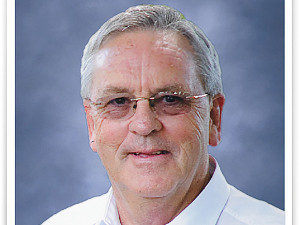Green no more?
OPINION: Your old mate has long dismissed the Greens as wooden bicycle enthusiasts with their heads in the clouds, but it looks like the ‘new Greens’ may actually be hard-nosed pragmatists when it comes to following voters.
 Owen Jennings believes that rural New Zealand needs strong, decisive leadership on climate change matters.
Owen Jennings believes that rural New Zealand needs strong, decisive leadership on climate change matters.
OPINION: Right now, rural New Zealand needs strong, decisive leadership on climate change matters.
There is a dangerous vacuum. Who will stand up for truth, facts, latest science and defend the interest of farmers, their families and rural communities? The need is urgent.
The HWEN exercise was a disaster, other than buying time. Our present leadership is divided and, in most cases, just plain wrong on the question of ruminant methane's impact on the atmosphere.
The notion that the science is ever settled is a pernicious lie and should be fought with all our might. For example, in the last IPCC Report - AR6 - the scientists backed off the previouslt announced, extreme RCP8.5 scenario having once called it "business as usual". It was gone from their Expert Review report. The "settled" science was quietly changed and updated.
The same IPCC Report admitted that methane's warming potential had been overstated by 400% and was now a MASSIVELY different issue for countries like New Zealand, where farmers have been accused of being responsible for nearly half of the nation's emissions.
Where was the Prime Minister announcing with elation that New Zealand's emissions profile had been over-stated and was now lowered dramatically, and our farming "problem" had been radically reduced?
Where was Climate Change Minister James Shaw crowing that we had won a huge victory for common sense?
Where were our farming leaders shouting triumphantly that farmers were being saved millions of dollars because rural New Zealand's emissions were slashed by the latest, current science from 'nearly half' to just 10%?
IPCC lead authors and the AR6 has put beyond any doubt that the GWP100 formula (which had always been used in New Zealand to get to the "nearly 50%") was now off the table, once and for all.
Page 1016 of Chapter 7 of AR6 said:
"...expressing methane emissions as CO2 equivalent of 28, overstates the effect on global surface temperature by a factor of 3-4".
That is what happens in science; it evolves under challenges. It is refined, changed, disputed. It is never 'settled'.
Now, even more recent science is revealing that the role of methane is even more miniscule and irrelevant. Leading climate scientists Wijngaarden and Happer have carried out research based on real air (a first, as all previous experiments have been in dry air in a laboratory) that shows methane is only as effective as CO2 in absorbing out-going radiation - not 28 times stronger as previously believed. This research is strongly supported by Sheahen, May, Allison, et al.
The findings show methane can only absorb in one very narrow band on the electro-magnetics spectrum in a space that is dominated by water vapour. This new uncontested science shows water vapour can be anywhere from 6,000 to 22,000 times more dominant than methane, making methane's contribution to warming insignificant and totally inadequate to attract a tax of any sort.
Where is the farming leader who will get their head around such science and pull the farming community together with integrity, unity, and strength?
Farmers deserve better. There urgently needs to be a position built, bringing together farmers from the grass fed-dairy and beef farming countries that stands up for the latest science and demands the IPCC recognise the facts.
The National and ACT parties have committed to a "science-based solution". They now have it. Let's see them deliver.
Trust must prevail. Current science must prevail.
Owen Jennings is former National President of Federated Farmers and ACT MP.
Coming in at a year-end total at 3088 units, a rise of around 10% over the 2806 total for 2024, the signs are that the New Zealand farm machinery industry is turning the corner after a difficult couple of years.
New Zealand's animal health industry has a new tool addressing a long-standing sustainability issue.
The Government has announced that ACC will be a sponsor of this year's FMG Young Farmer of the Year competition.
As veterinary student numbers grow to help address New Zealand's national workforce shortge, Massey University's School of Veterinary Science is inviting more veterinary practices to partner in training the next generation of vets.
South Island dairy farmers will soon be able to supply organic milk to Fonterra.
Norwood has announced the opening of a new Tasman dealership at Richmond near Nelson next month.

OPINION: Meanwhile, red blooded Northland politician Matua Shane Jones has provided one of the most telling quotes of the year…
OPINION: This old mutt has been around for a few years now and it seems these ‘once in 100-year’ weather…